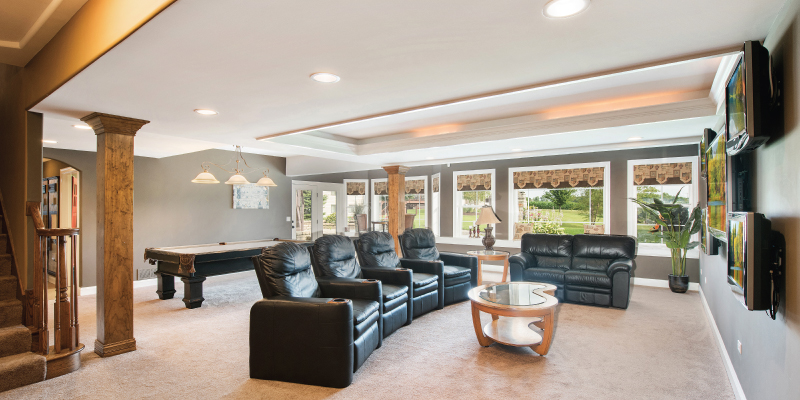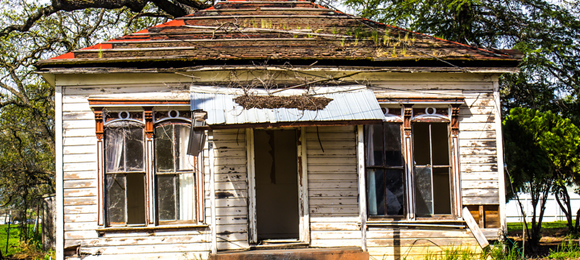
Updated June 13, 2023
The question of renovating versus demolishing a house is one worth discussing because the cost difference in various situations can be quite substantial.
Many factors go into the decision, and it’s often not a clear-cut solution either way.
Factors, like the historical significance of a building, the condition of the house, "green" considerations, and possible demolition setbacks may come into play when deciding whether you should demolish or renovate.
We’ll cover these topics and help you get a better grasp on whether you should demolish and rebuild or renovate your current structure.
We'll discuss:
- How Much It Costs to Demolish and Rebuild a House
- Factors Affecting the Cost of Rebuilding a House
- How Much It Costs to Renovate a Home
- Factors Affecting the Cost to Renovate
- How to Dispose of Debris
- Key Things to Consider When Making Your Decision
Find a house demolition contractor near you
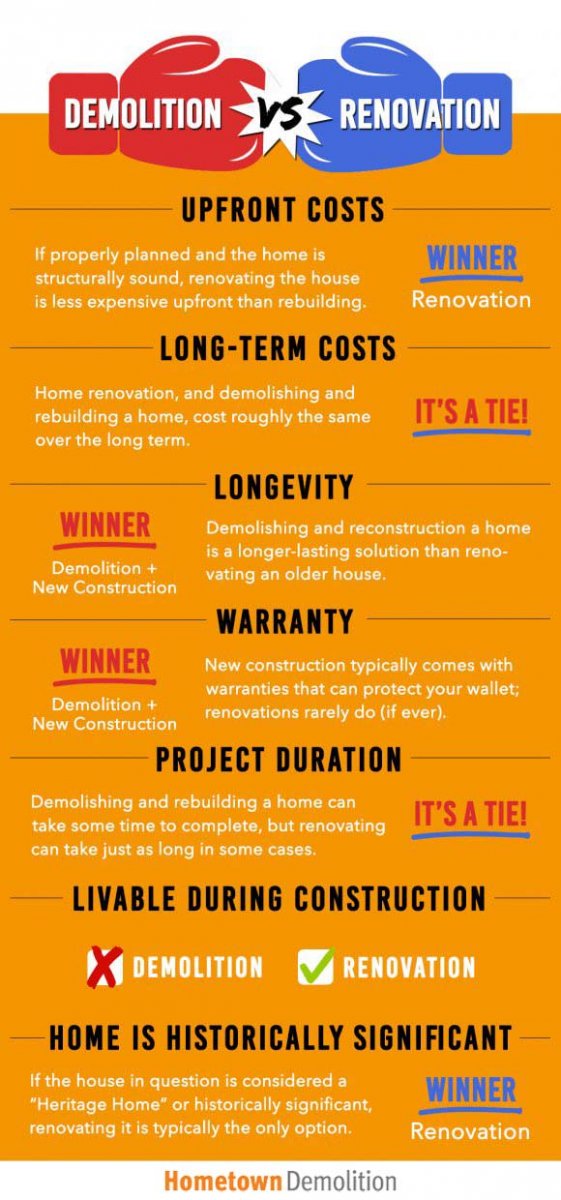
How Much It Costs to Demolish and Rebuild a House
The cost of demolishing a house is less than you may think.
The national average cost of demolishing a home is just under $9,000. However, your cost can vary based on your location, size of the house and other factors.
| House Size | Demolition Cost | Rebuild Cost | Total Cost |
|---|---|---|---|
| 1,000 sq ft | $4,000-$15,000 | $40,000-$175,000 | $44,000-$190,000 |
| 2,000 sq ft | $8,000-$30,000 | $70,000-$350,000 | $78,000-$380,000 |
| 3,000 sq ft | $12,000-$45,000 | $120,000-$525,000 | $132,000-$570,000 |
A complete house demolition requires quite a bit of planning, including obtaining the right permits and preparing the site for new construction.
However, rebuilding the new home is where the project’s overall cost makes a substantial jump.
Factors Affecting the Cost of Rebuilding a Home
There are many factors influencing the cost of building a new house, including (but not limited to):
- Size of the home you're building
- Where you are building the home
- Accessibility of the build site
- Materials used to build the house
- Features of the home
- Site work that needs to be done
- Which contractor you hire
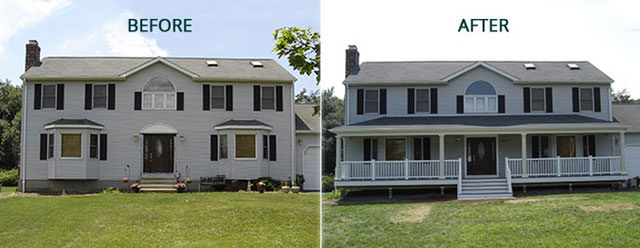
The total cost to demolish and rebuild a house is highly variable, but expect the total project costs to range from $70,000 (for a modest home in an affordable part of the country) to $500,000 or more (for complicated, large-scale house demo-and-rebuild projects in more expensive parts of the U.S).
While a 2,000 square foot house with average-quality features and no basement can easily cost $70,000 or more to build, the costs are often minimized when first demolishing the home because much of the site work is already completed (e.g., foundation [if being reused], excavation, concrete work, etc.). This work alone can cost several thousand dollars.
Read more:
- Simple House Demolition Cost Calculator
- 3 Simple Tips to Lower the Cost of Demolishing a House
- How Much Does Demolition Cost per Square Foot?
- How to Read and Make Sense of a Demolition Estimate
Get quotes from house demolition contractors near you
How Much It Costs to Remodel a House
Renovating is an alternative to demolishing your home, and while it may sound like the more affordable option, that’s not always the case.
| Type of Remodel | Minimum Cost | Maximum Cost |
|---|---|---|
| Minor Remodel includes: interior & exterior painting, small repairs/refinishing touches, new landscaping | $25,000 | $45,000 |
| Medium Remodel includes: minor remodels listed above, total kitchen renovation, minor bathroom remodel | $46,000 | $75,000 |
| Major Remodel includes: minor & medium remodels listed above, fixing foundation issues, roof, sewer line issues | $76,000 | $100,000+ |
Factors Affecting the Cost of Remodeling a Home
The exact cost of remodeling your home will depend on:
- Size of the house (or how much of the home you want to remodel)
- Where the house is located
- Which contractor you choose to hire
- Accessibility of the remodel location
- Remodel features and materials
It's not uncommon for homeowners to greatly underestimate the cost of home renovation projects.
Most home remodeling projects cost around $35,000, and "hidden problems" can quickly drive up this cost.
Not only can new carpet and paint cost $10,000+ alone, but costs also tend to accumulate the further you get into a renovation project and the more hidden problems are discovered.
It isn't uncommon for an interior and/or exterior renovation to become a much larger project due to unforeseen circumstances.
For instance, tearing off drywall can reveal mold issues, leaky pipes, rotted wood, damaged wiring, a cracked foundation, or other problems.
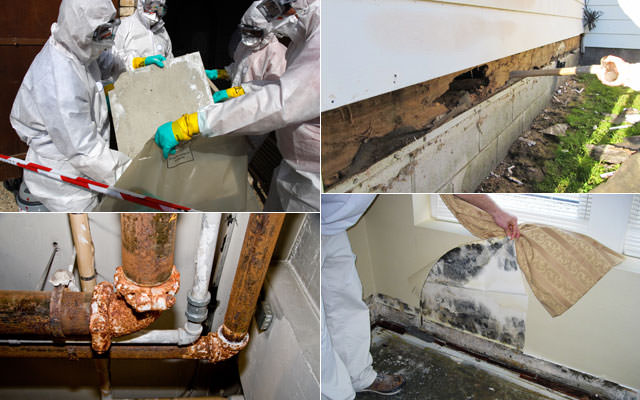
If you’ve ever watched those "house flipping" shows on television, you’ve seen how quickly a $10,000 estimated budget can balloon into $50,000 once the work progresses.
This isn’t to say that discovering hidden problems inside the guts of a house is a bad thing. On the contrary, it’s important to expose and address those hidden dangers in order to keep you and your home safe.
This also isn’t to say that renovation is the inferior choice to demolition; it varies case by case.
The key is taking the necessary precautions during the planning phase before the first sledgehammer is swung.
Don’t go into the renovation project blindly and hope to stay within budget; it’s just not realistic.
Instead of finding surprises during a home renovation project, most demolition companies can come out to your home and do a full inspection to check for things like asbestos, mold, cracked foundations, and more.
A pre-demolition/renovation inspection can really make the decision between renovating vs demolishing the home a much easier one. Not to mention, it can save you a ton of money and headaches in the long run.
Keep reading about home renovation:
- Getting Started with Demo
- Planning a Successful Demolition or Renovation Project
- 8 of the Hottest Bathroom Remodel Design Trends
Find local demolition contractors near you
How to Dispose of Debris
Demolition and renovation projects can produce quite a bit of debris, and renting a dumpster is one of the most convenient ways to do that.
For whole-home demolitions, you will typically want to rent a large 30 or 40-yard dumpster.
Hometown can help you find the right local dumpster provider for you, and we can help show you how to get the best price possible.
Learn more about renting a dumpster:
- Renting a Dumpster for Interior Demolition: Keys to Success
- What Can I Throw in a Dumpster? A Convenient Guide
- The Complete Guide to Getting Rid of Everything
- 7 Easy Ways to Get a Discount on Dumpster Rental
Key Things to Consider
There are certain factors and situations where the option to demolish or renovate is out of your hands.
Some examples of this include:
- Historically significant homes, or "heritage homes," usually cannot be demolished without jumping through quite a few hoops with local, state, and even federal governments.
- Local building codes may limit how your new home can be built after a demolition. Building codes are changed all the time, so it’s important to familiarize yourself with them prior to a home renovation or demolition project.
- Trying to cut corners to save money on a home renovation—particularly when trying to sell the home—can leave you in a sticky situation if the quality isn’t up to code, and you’ll most likely have to pay to have the house repaired to get it up to code.
- Living in the home during a renovation project can be harmful to the health of anyone with allergies or asthma.
- Ask yourself: Would you rather live in a brand new home designed to your liking, or keep the “bones” of your old house and give it a 'facelift?'
- You can reuse parts of your old house during a demolition-and-rebuild project or a renovation project, such as timbers, windows, tiles, and historical features. It’s an environmentally friendly practice referred to as deconstruction, and it can save you money by cutting down on material costs.
- Poor planning can lead to expensive renovation costs. If you’re a bad planner and don’t have a significant amount of time to be hands-on with the renovation, a demolition-and-rebuild may be a better option.
- Get an inspection before you decide on anything! A house found to be in very poor condition structurally-speaking is better off demolished. It’s a cheaper and safer option.
- Energy-efficiency is critical nowadays and will be in the future. Newly constructed homes tend to be more efficient than renovated homes. If energy efficiency is important to you, demolishing and reconstructing is the way to go.
- Most home renovations require contractors to come back at a later date for maintenance or updates. Don’t forget to factor this in when determining the cost of renovating your home.
- You’ll almost always have a better warranty on a new home compared to a renovated one.
As you can see, there are many factors to consider before making your decision. Start by getting a home assessment from a licensed demolition contractor or home builder. If your home is found to be structurally sound and has healthy “guts,” renovation may be an option for you.
If the house has suffered major damage, has a poor foundation, or you’d simply prefer to have a brand new home, go with a demolition-and-rebuild.
Learn more about demolition:
- A Guide to Demolition in NYC
- A Guide to Demolition in Los Angeles
- Florida Demolition 101: What You Should Know About Demo in the Sunshine State
- Illinois Demolition: Rules to Follow, Who to Hire, and More
Find house demolition contractors near you
Related resources:
